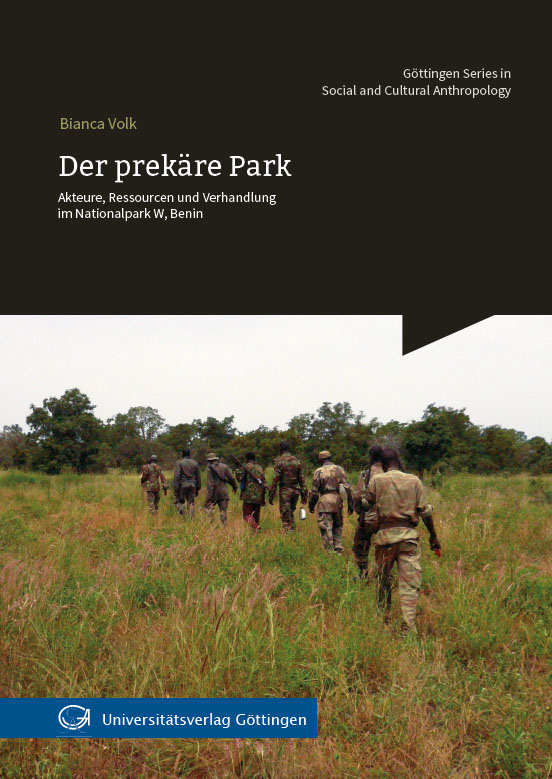W National Park lies in the border triangle of Benin, Burkina Faso and Niger in West Africa. Established under French colonial rule in 1927, it was designated as the first African transborder biosphere reserve in 2002. Although the Benin part of the reserve was given a participatory management approach in 2002, illegal hunting, logging, transborder mobile herding and cash cropping continue to pose important threats to the reserve. The whole area, especially the buffer zone, is a source of conflicts between the different adjacent communities and between communities and park administration. The book analyses how the surveillance teams operate in this context. It describes encounters between park surveillance staff and local stakeholders in three different arenas: the park’s core area, adjacent villages and public political forums. It shows how, in a setting dominated largely by cash crop production, the abstract idea „national park“ is being translated by park staff and how in the process local meanings of the idea emerge. Drawing on 14 months of ethnographic research between 2008 and 2010, this book contributes to the current state of research on participatory natural resources management. Moreover, it provides insights into the working of state administration in a context of contradictory policies of conservation and rural development.
Publikationstyp: Hochschulschrift
Sparte: Universitätsverlag
Sprache: Deutsch





